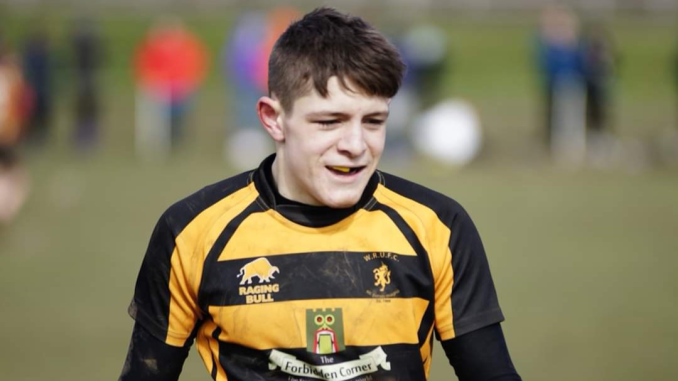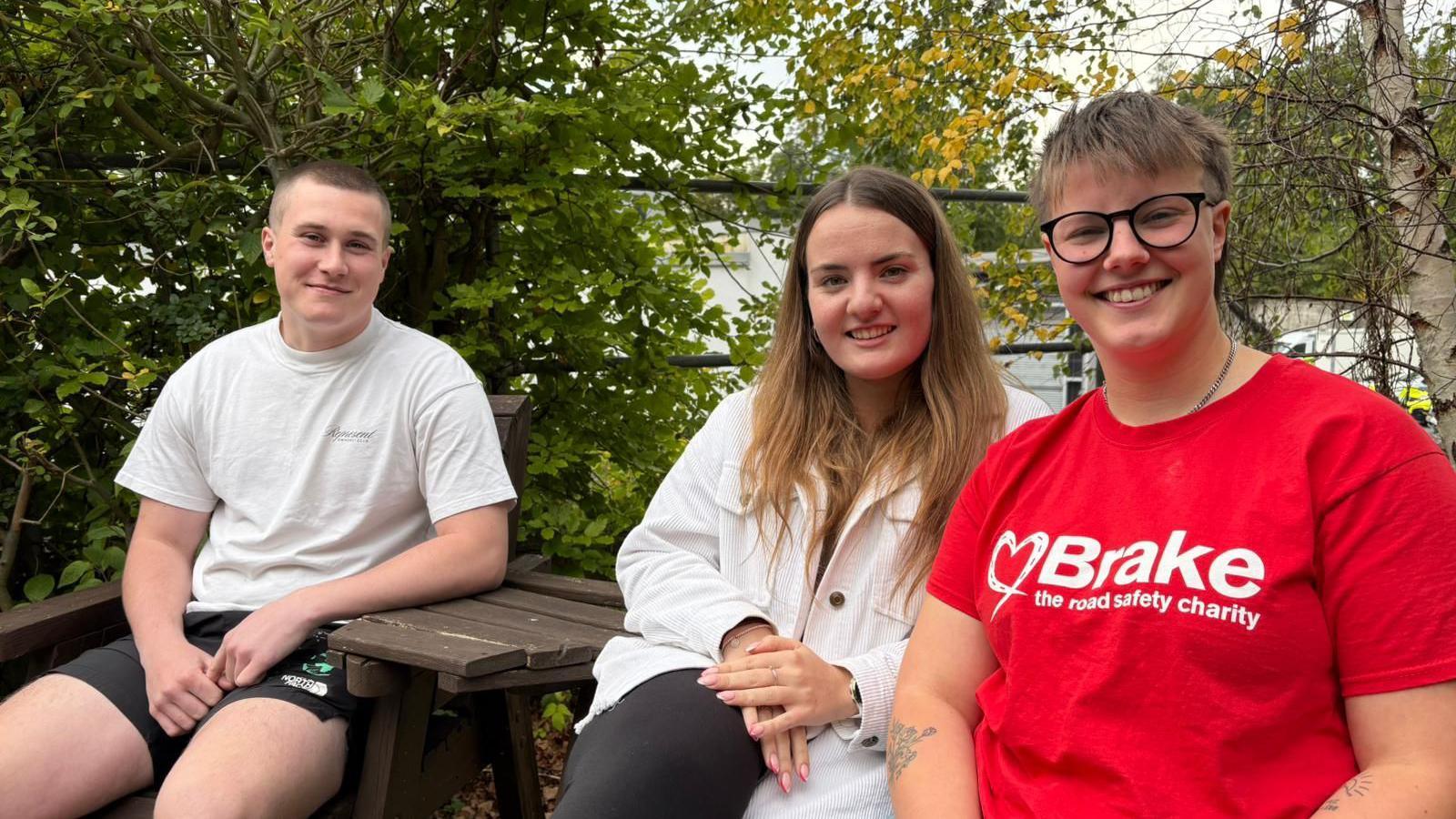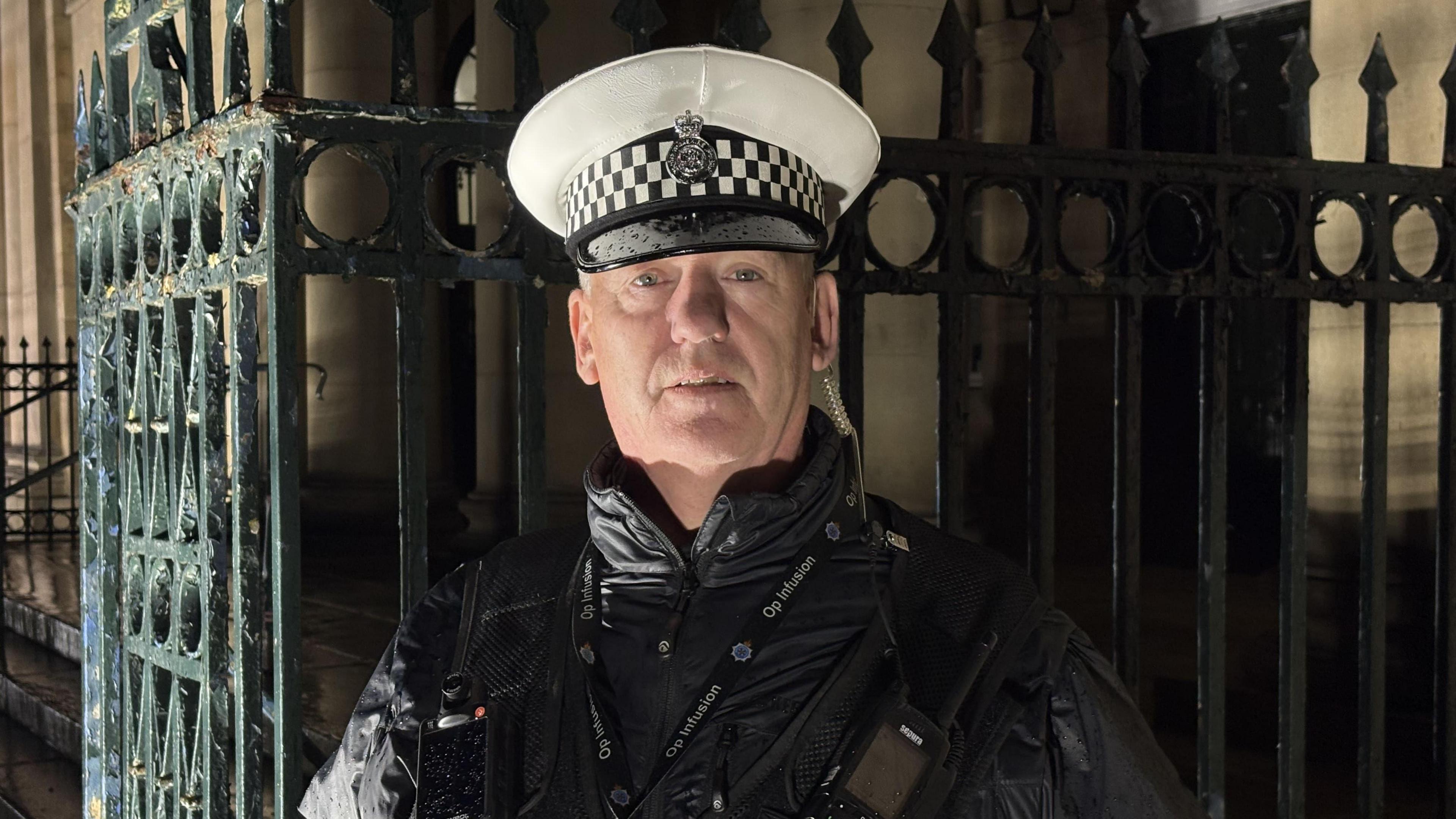The 'horrible nightmare' of losing a friend in a car crash

Aaron Bell was killed in a crash along with two of his friends
- Published
Lottie, Sam and Rose are scrolling through their phones reminiscing about their friend, Aaron Bell.
"We were attached at the hip pretty much," says Lottie.
"He was always my little buddy, my little bro."
Sam remembers messing about at the gym or playing video game EA FC together, while his girlfriend, Rose, recalls how he showed her around his family's farm.
As they flick through their albums, their photos together come to an abrupt end on 29 July 2022.
It was the day Aaron died in a car crash.
He was one of three passengers in an Alfa Romeo that smashed into a tree at "excessive speed".
The driver, 18-year-old Joshua Chapman, survived and was jailed for causing the deaths of Aaron, 18, Louis Banks, 17, and Tommy Shevels, 18.
"I just wanted to wake up. It felt like a horrible, horrible nightmare," Lottie tells BBC Newsbeat.
Lottie's one of the thousands in the UK who have lost a loved one in a crash.
The latest government figures show 1,602 people died in car crashes in England, Wales and Scotland last year.
Of those, 226 were aged 17-24.
In Northern Ireland, 13 people aged 16-24 died in similar circumstances.
The annual figure is still lower than it was before the Covid-19 pandemic, but numbers don't tell the whole story.

Sam, Rose and Lottie say Aaron was a close friend who is much missed
PC Rich Clarke, a roads policing officer in North Yorkshire, is often the person who has to give someone "the worst news they're ever going to get".
That usually involves turning up at someone's home.
"I know I've got to knock on that door," he says.
"But sometimes I just find myself giving them two more minutes."
In a case like Aaron's, three families would have received a visit from PC Clarke or a colleague.
He says young people are "substantially more likely to be involved in a collision" during their first two years as a driver.
According to an expert at Cardiff University, around one in five newly qualified drivers crash within six months of getting their licence, external - most are aged under 25.
The report also said that drivers aged 17 to 19 hold around 2% of driving licences in the UK, but are involved in 10 to 14% of crashes.
Aaron's friend Sam tells Newsbeat young drivers can often feel peer pressure to show off or drive fast.
"You still have the responsibility of everyone else's safety," he says.

PC Rich Clarke has to break the news to the family and friends who have lost loved ones in crashes
Lottie says the crash that killed Aaron left her "terrified" and made her realise that a lot of younger drivers feel invincible.
"You think: 'nothing's going to happen to me. It always happens to someone else'," she says.
"And that's just not the truth."
The friends believe more should be done to remind young people about responsible driving.
There is a national campaign to recognise the "fatal five" causes of road deaths, external, including not wearing a seatbelt or using a mobile phone while driving.
New young drivers should not carry under-21s as passengers - AA
- Published21 October 2024
'Young drivers think they're invincible'
- Published1 October
In Northern Ireland, 207 people aged 16 to 24 were either killed or seriously injured in 2024.
There is a target to reduce that to 79 by 2030.
The country also had a graduated licensing scheme in place, where drivers have to display an R plate for one year after passing their test.
There had been plans to ban drivers under the age of 21 from carrying passengers of the same age for six months - but that hasn't happened yet.
Motoring group the AA has called for on the UK government to bring in a similar passenger ban, but they are not currently being considered.
Aaron's girlfriend Rose says there's nothing to stop young drivers from resisting peer pressure and taking time to build confidence behind the wheel.
"I just don't think you should have a car full," she says.
"Realistically, you don't learn to drive until you've been driving a while."
